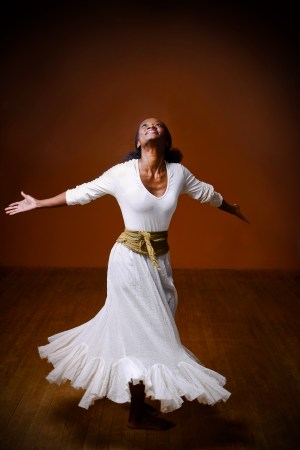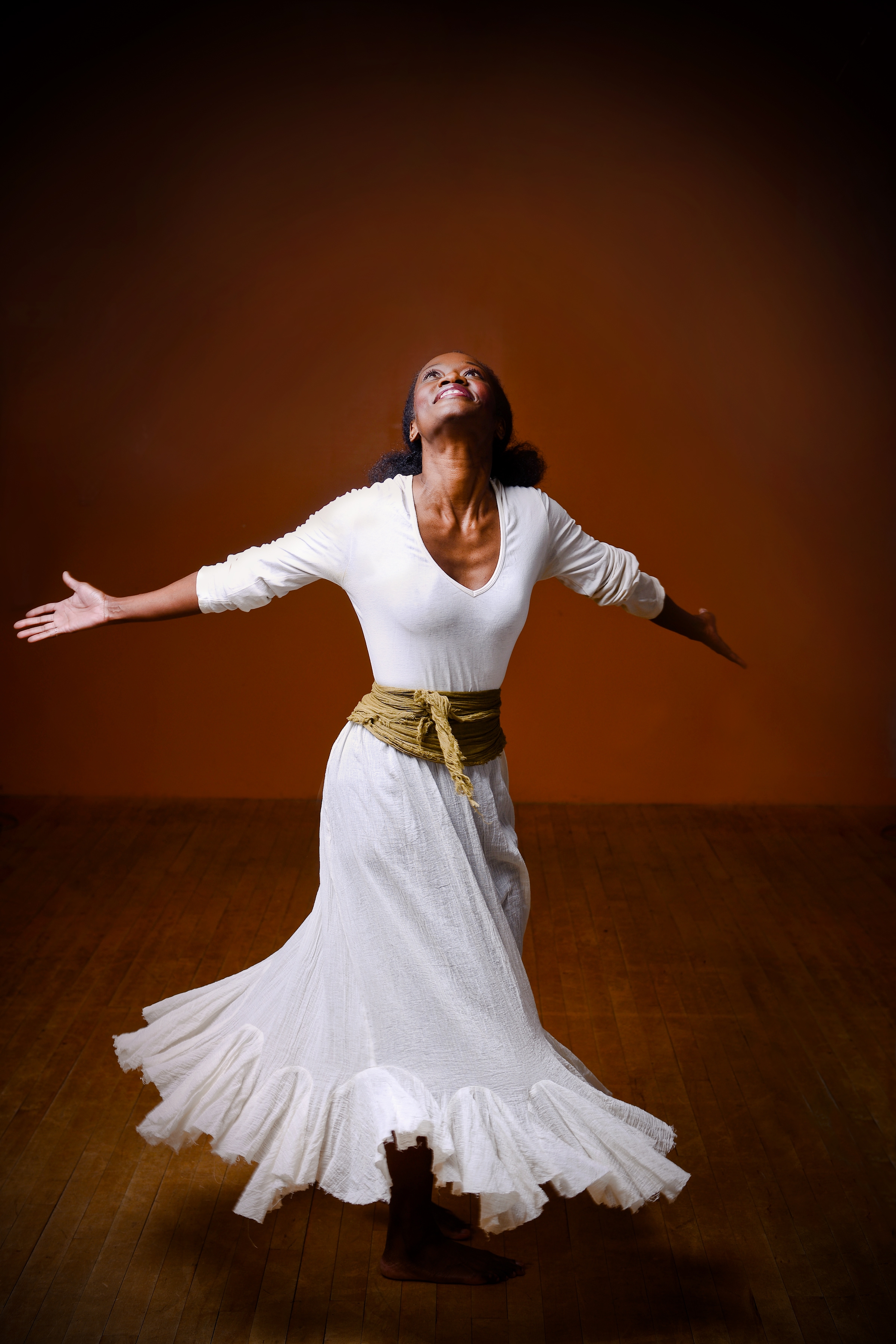This weekend and next, there’s something kind of huge going on at Links Hall. Four years of work and a collaboration between Links Hall, Living Arts of Tulsa, Diaspora Vibes Cultural Arts Incubator, The Theater Offensive and the National Performance Network all lead up to the Chicago premiere of Sharon Bridgforth’s River See. Not a dance concert, River See is a multi-disciplinary theatrical jazz experience telling the story of See, a girl about to make a migration to the North. From the liner notes:
River See is an exploration in theatrical jazz, a distinctive artform with multiple manifestations. Imagine theatre as a prayer, as a raunchy healing gutbucket number carrying all of us to our best selves.
That sounds about right.

Sonja Parks as the title character is infectious, and her impassioned delivery of the sometimes maundering, more often poignant text gives audience members as much insight into the story as we need. River See is not about understanding. It’s about listening and hearing, watching and witnessing, playing and participating. Links Hall’s blank white studio is transformed into a world (designed by scholar Omi Osun Joni L. Jones) that is deep South – New Orleans specifically – in two corners and Africa in the others. Aspects of River See call to mind Alvin Ailey’s Revelations; four of six cast members are dressed in flowy white costumes, umbrellas hang in one corner, soulful music and sounds of pouring water giving continual reference to the river, to wading, to a baptism of sorts.
We see further evidence of River See‘s cultural origins in its movers. Ni’Ja Whitson Adebanjo returns to Chicago joined by Jasmine Johnson as the Eguns (dancers). As the only characters onstage who wear colorful costumes, the women often frame the two singers with liquid arms and sweeping movements clearly derived from traditional African dance. Links Hall veteran Marie Casimir is often seen alone in the work, and her haunting character evokes images of Voo-Doo mysticism as she whispers Creole into See’s ear. Composer Sharon Bridgforth indicates that while River See is clearly set in a specific time and place, it is an experience that transcends culture and geography. The audience becomes part of the story as we are invited to give invocations according to gestural cues Bridgeforth conducts throughout the evening.
River See is one of those shows that feels special, with little clarity of knowing why. As a witness to the dress rehearsal, the text and music washed over me. I felt no ability to relate to the story, but compelled to hear it anyway. Again from Omi Osun Joni L. Jones’ liner notes:
Your personal vision is shaped by where you are sitting, what you brought with you to the space, and what your dreams for your world might be. Tonight, see what you can see.
—
River See runs through June 29 at Links Hall (3111 N. Western Ave). Tickets are $10-20 available online or at the door (though seating is limited). Fridays & Saturdays shows at 7pm, Sundays at 3pm
